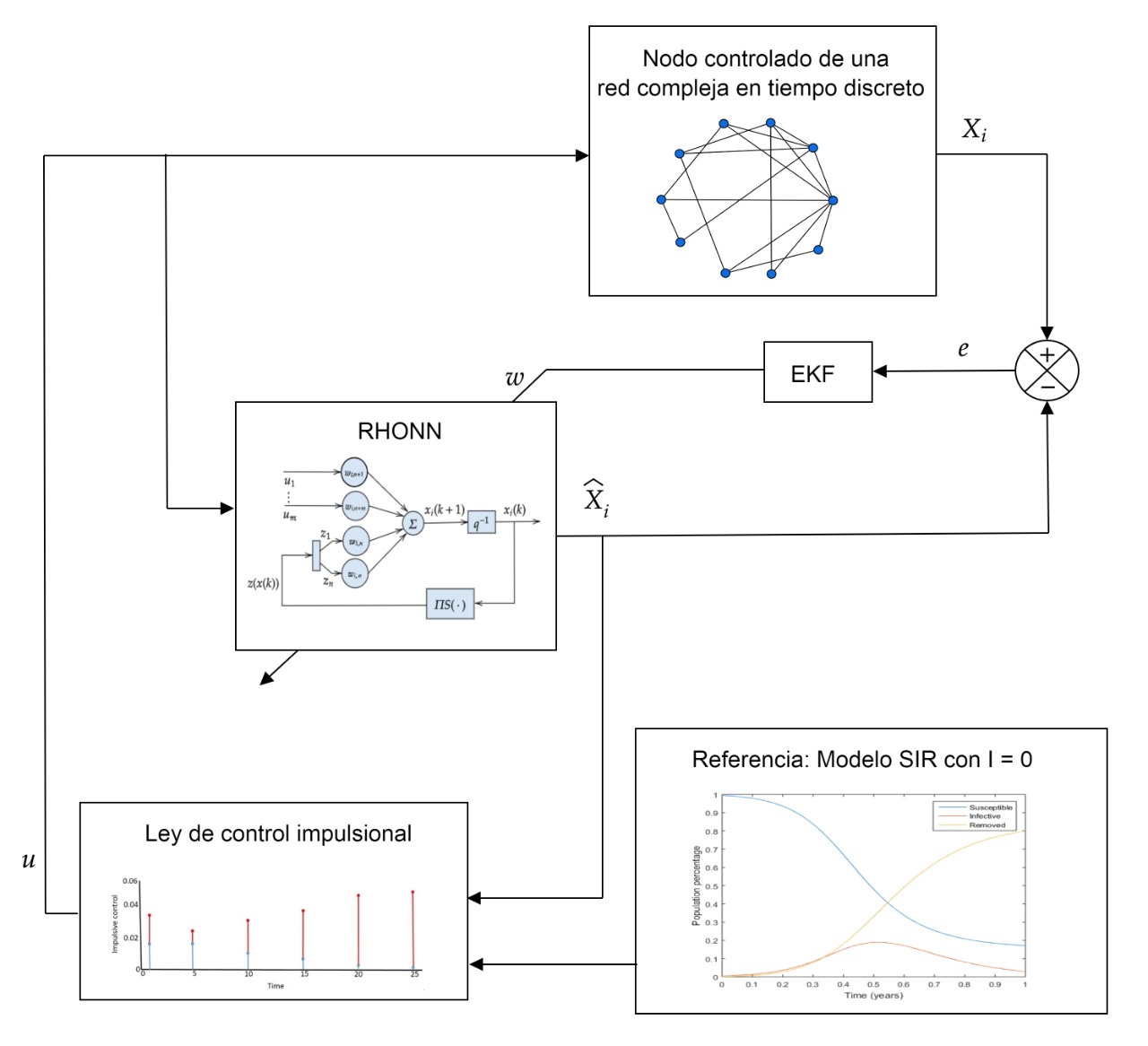Neural Control for Epidemic Model of Covid-19 with a Complex Network Approach
Keywords:
Neural Network, COVID-19, complex networkAbstract
This paper presents the mathematical model Susceptible-Infected-Recovered SIR with parameters that describe the COVID-19 dynamics. This model is based on a system of ordinary differential equations in which appropriate conditions and starting parameter values such as transmission rates and recovery rates are considered known. These parameters are utilized to obtain a simulation of COVID-19 behavior, in order to establish a possible solution to avoid a greater chance of disease transmission. On the proposed scheme, we use a neural impulsive inverse optimal control for a complex network in which the dynamic of each node is a discrete version of SIR model that describe the dynamics of COVID-19. The neural network is trained with an extended Kalman’s filter and is used as a neural identifier for the selected nodes of the system. The control law used represents a hypothetical treatment for COVID-19. This work aims to simulate the interaction of different populations during an epidemic outbreak in which populations are represented by the complex network nodes
Downloads


